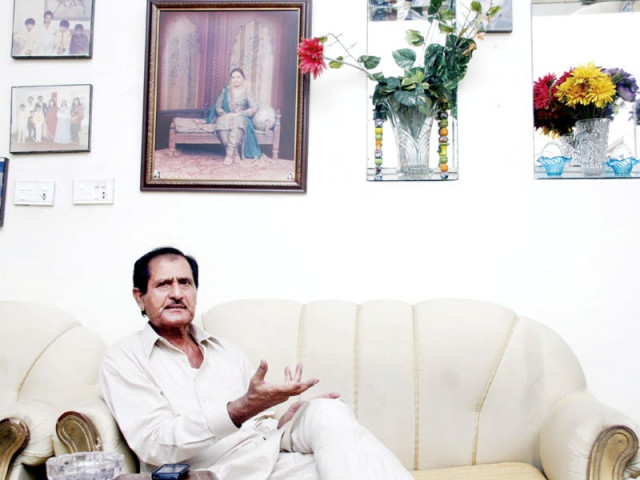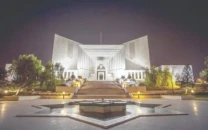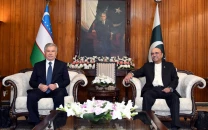Pakistani society looks down upon film, says Nasir Adeeb
The legendary director touches on the issues that plague Pakistani cinema.

Pakistani society looks down upon film, says Nasir Adeeb
“There was once a time when you would never want to leave the film studios. Today, you never want to go to them,” says legendary screenwriter and director Nasir Adeeb, who remains uncensored, unapologetic and proud. By rising to fame in the mid 1970s and becoming one of Pakistani cinema’s most prolific director-screenwriters, Adeeb now boasts an impressive array of credentials.
In an interview with The Express Tribune, Adeeb shares insights on his career and his career philosophy. “I was a person who dreamed big and worked hard to define my life’s journey,” says Adeeb, who is the only educated person in his family. He is distressed and emotional as he reflects on people’s attitude towards the Pakistani film industry. “There was no film industry,” he laments. “This is a society that has always looked at this medium with hypocrisy. Because we are a Muslim country, no parent would tell their child to join the film industry back then. The same is true today.”
Reflecting on the days of yore, Adeeb points out that many old films always had a cliché romantic tinge in which the lovers would woo and chase each other. He says these films motivated him to undertake projects that tell stories of a different nature, like those that touch upon characters standing against oppression. By doing so, Adeeb became one of the first scriptwriters in Pakistan to add diversity to the dominant themes in the film industry in the 1970s.
He reminisces that during the 1970s, he had thought of writing scripts regarding the 1971 split and the creation of Bangladesh, but was unable to deliver due to state restrictions and the public’s reluctance to touch upon political issues.
“We have never been able to do films on political issues or to talk about a sitting minister or even the army for that matter. We were also unable to talk about the 1971 war or the Kashmir issue, so naturally, all we had left were profanities and criminal themes,” says Adeeb.
Consequently, Adeeb embarked on a journey of creating an array of action films in which legendary actor Sultan Rahi proved to be quite eminent. Adeeb admits that his career was strongly tied to Rahi, who single-handedly dominated Pakistani cinema for many years. So much so, that Adeeb wrote 412 films alone for the famed actor. Rahi and Adeeb brought action films into another realm in Pakistani cinema together with seminal films like Maula Jatt.
“Sultan Rahi was the film industry,” says Adeeb. “When he left, he took the audience with him to the grave.” Adeeb recalls that Rahi would be covered with bruises while enacting action sequences. “Whatever it was, we made sure we never let the industry down and continued to work and did a good job too,” he adds, remembering the late actor with great fondness.
When asked if he was looking to write another film, Adeeb says he had planned to do a film with Masood Butt but the lead star, Shan, eventually pulled out of the project.
Today, Adeeb looks at his trajectory with scepticism, pointing out that several measures must be taken by the government to save cinema, a daunting task in itself. He proclaims that the elite culture in the country has always looked down upon Lollywood and never given it enough credit — an attitude which has greatly damaged the business. He further adds that banning Indian films may not be enough this time around and that much more drastic reform legislation will be required to allow the industry to rise from its ashes and reinvent itself.
Published in The Express Tribune, August 2nd, 2012.



















COMMENTS
Comments are moderated and generally will be posted if they are on-topic and not abusive.
For more information, please see our Comments FAQ